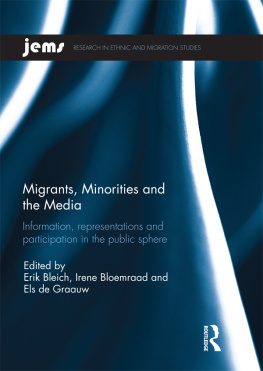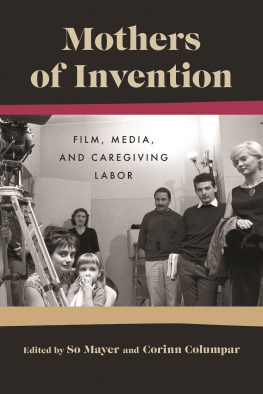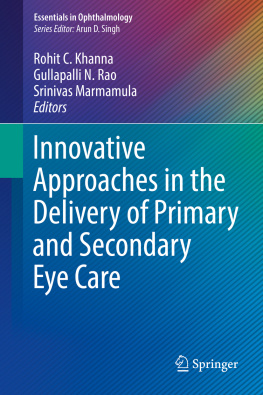
Men, Caregiving and the Media
Analysing diverse media representations of men who provide primary care to their children, this book demonstrates how the practice of fatherhood and of masculinity is changing, and the ways media representations sensationalise and reinforce gender inequities in regards to carework.
This book examines disparities between practices of carework amongst heterosexual couples and media representations of men who provide primary care, whilst also including a discussion of media accounts of primary caregiving amongst gay couples. The book also provides a detailed analysis of the relationship between care labour and public understandings of masculinity. Assessing whether media accounts of fathers who provide primary care undermine egalitarian approaches to the division of labor amongst heterosexual couples, this book is a vital intervention into public discourse about masculinity, fathering, and caregiving.
This book will be an important resource for students, researchers, educators, and practitioners as it brings together a range of in-depth literatures, and empirical analyses to provide a clear overview of contemporary fathering. It will be essential reading in the fields of gender studies and masculinity studies, together with sociology of families, cultural studies, social psychology, and social policy.
Sarah C. Hunter is a post-doctoral research fellow in the College of Nursing and Health Sciences, Flinders University and a Visiting Research Fellow in the School of Psychology, the University of Adelaide. Her research interests pertain to Men, Masculinities, and Fathering. In particular, she is interested in the role of social norms and expectations and how the discourses surrounding these impact on the lives of men and fathers. One of her more notable publications in this area published in Social Personality and Psychology Compass challenged current thinking in the field by arguing that suggestions of shifts in masculinity are overstated. In addition, Sarahs research also pertains to Knowledge Translation and the various ways in which we can take research findings and influence policy and practice and make positive, sustainable change in society.
Damien W. Riggs is a professor in psychology at Flinders University and an Australian Research Council Future Fellow. He is the author of over 200 publications in the fields of gender, family, and mental health, including Working with transgender young people and their families: A critical developmental approach (Palgrave, 2019). He is a Fellow of the Australian Psychological Society and a psychotherapist in private practice specialising in working with transgender young people.
Interdisciplinary Research in Gender
Ungendering Technology
Women Retooling the Masculine Sphere
Carol J. Haddad
Ageing and Contemporary Female Musicians
Abigail Gardner
Sexual Violence and Humiliation
A Foucauldian-Feminist Perspective
Dianna Taylor
Gender, Sexuality and the Cultural Politics of Mens Identity in the New Millennium
Literacies of Masculinity
Robert Mundy and Harry Denny
Drag, Interperformance, and the Trouble with Queerness
Katie Horowitz
Re-writing Women as Victims
From Theory to Practice
Maria Jos Gmez Fuentes, Sonia Nez Puente and Emma Gmez Nicolau
Cultural Reflections of Medusa
The Shadow in the Glass
Jennifer Hedgecock
Representations of Working-Class Masculinities in Post-War British Culture
The Left Behind
Matthew Crowley
www.routledge.com/Interdisciplinary-Research-in-Gender/book-series/IRG
First published 2020
by Routledge
2 Park Square, Milton Park, Abingdon, Oxon OX14 4RN
and by Routledge
52 Vanderbilt Avenue, New York, NY 10017
Routledge is an imprint of the Taylor & Francis Group, an informa business
2020 Sarah C. Hunter and Damien W. Riggs
The right of Sarah C. Hunter and Damien W. Riggs to be identified as authors of this work has been asserted by them in accordance with sections 77 and 78 of the Copyright, Designs and Patents Act 1988.
All rights reserved. No part of this book may be reprinted or reproduced or utilised in any form or by any electronic, mechanical, or other means, now known or hereafter invented, including photocopying and recording, or in any information storage or retrieval system, without permission in writing from the publishers.
Trademark notice: Product or corporate names may be trademarks or registered trademarks, and are used only for identification and explanation without intent to infringe.
British Library Cataloguing-in-Publication Data
A catalogue record for this book is available from the British Library
Library of Congress Cataloging-in-Publication Data
A catalog record has been requested for this book
ISBN: 978-1-138-31675-1 (hbk)
ISBN: 978-0-429-45547-6 (ebk)
Typeset in Bembo
by Apex CoVantage, LLC
Sarah would like to dedicate this book to her parents, Janine and Ronald.
Damien would like to dedicate this book to Damian and Jeremiah.
We begin by acknowledging the sovereignty of the Kaurna people, the First Nations people upon whose land we live and work.
Thanks must go to Alexandra McGregor for commissioning this book and to Eleanor Catchpole Simmons for her support throughout the production process. Thanks to Martha Augoustinos for supporting some of the early work that appears in this book. Thanks to Rebecca Feo for collaborating on an earlier version of one of the chapters that appears in this book. Thanks to Stefanie Lopriore for providing feedback on all of the chapters in this book and Alison Kitson for feedback on one of the chapters.
An earlier version of was published and appears here with permission from SAGE: Hunter, C., Riggs, D.W., & Augoustinos, M. Constructions of primary caregiving fathers in popular parenting texts. Men and Masculinities pp. 120. Copyright [2017] (Copyright Holder). doi: 10.1177/1097184X17730593
An earlier version of was published and appears here with permission from SAGE: Hunter, S.C., Riggs, D.W., & Feo, R. Australian News Media constructions and categorisations of primary caregiving fathers. Discourse and Society (Volume 30 and Issue Number 6) pp. 622635. Copyright [2019] (Copyright Holder). doi: 10.1177/0957926519870045
An earlier version of as published and appears here with permission from Cambridge Scholars Press: Bartholomaeus, C., & Riggs, D.W. (2016). Homonormativity in representations of gay fathers on television: Reproductive citizenship, gender, and intimacy. In R. Garrett, T. Jensen & A. Voela (Eds.) We need to talk about family: Essays on neoliberalism, the family, and popular culture . Cambridge: Cambridge Scholars Press. Copyright [2016] (Copyright Holder).
1
Introduction
In early 2018 the Prime Minister of New Zealand, Jacinda Arden, announced that she was pregnant, which was followed by a statement that her partner Clarke Gayford would take a primary caregiving role when Arden returned to work six weeks after the birth of the baby. Media attention to the announcement came from across the globe, primarily focused on Gayford as an exemplary man and father-to-be. For example, Walters (2018) noted that Gayford was to be congratulated on his choice to take time off from his job to care for his daughter. As we will argue throughout this book, this type of statement is emblematic of how men who provide primary care for their children are depicted in the media: as making choices to engage in a role that is positioned as other than work. Women, by contrast, are rarely praised for making a choice to provide primary care to their children. Instead, it is treated as axiomatic that women will do so.







